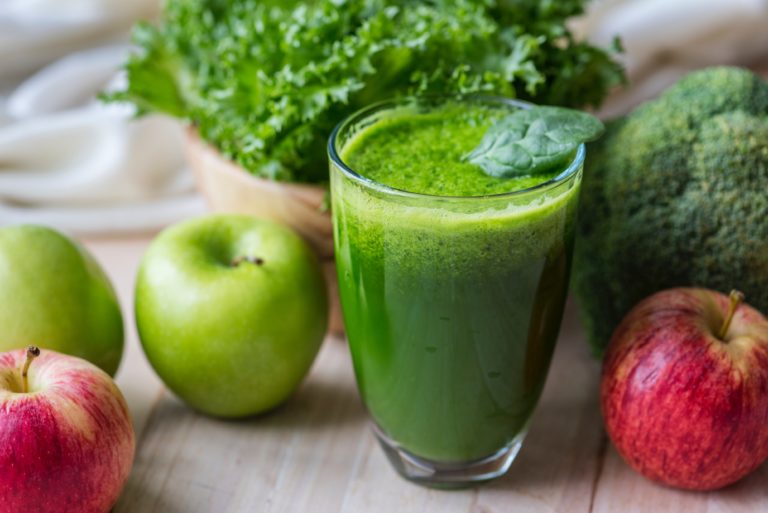Natural Chronic Fatigue Treatments

Chronic Fatigue Syndrome (CFS) affects as many as 1 million Americans every day.
Natural Chronic Fatigue Treatments
What is Chronic Fatigue?
We live in a society where exhaustion is widely prevalent. According to the CDC, 1 million to 4 million Americans suffer from chronic fatigue syndrome (CFS). It is estimated that of them, less than 20 percent have been formally diagnosed. Chronic fatigue syndrome is a complex disorder that manifests as extreme fatigue that has no clear cause and does not show improvement with rest. The condition is also known as system exertion intolerance disease (SEID) or myalgic encephalomyelitis (ME).
Fatigue can rob even the most well-intentioned person of the motivation to get something done. The causes of chronic fatigue aren’t fully understood. Some theories include viral infection, psychological stress, or a combination of factors. Because no single cause has been identified, and because many other conditions produce similar symptoms, chronic fatigue can be difficult to diagnose.
There are no tests for chronic fatigue. Your doctor will have to rule out other causes for your fatigue when determining a diagnosis. While chronic fatigue was a previously controversial diagnosis, it is now widely accepted as a medical condition. Chronic fatigue can affect anyone, though it is most common among women in their 40s and 50s. There is currently no cure, but treatment can relieve symptoms.
What are the Symptoms of Chronic Fatigue?
While the term “chronic fatigue” is fairly descriptive of this crippling illness, it doesn’t tell the entire story. Chronic fatigue often starts suddenly, with flu-like symptoms. Unlike the flu, however, chronic fatigue can last a lifetime.
In addition to experiencing profound fatigue throughout the day, other serious symptoms can accompany the illness, such as:
- Exhaustion and ashiness after physical activities
- Impaired memory or concentration
- Waking up tired, even after a full night’s sleep
- Frequent headaches
- Muscle pain
- Joint pain
- Digestive disorders like irritable bowel syndrome (IBS)
- Sore throat
- Tender lymph nodes on your neck
Sufferers of chronic fatigue syndrome also experience significant alterations in levels of irritability, mood swings, panic attacks, anxiety, and depression. According to a study published in Family Practice, 36 percent of individuals with chronic fatigue were clinically depressed and 22 percent had “seriously considered suicide in the past year.”
If you’re experiencing at least four of these symptoms, chronic fatigue might be to blame. But the problem with the term “chronic fatigue” is that it’s really only a description of how you feel – it doesn’t explain why you are fatigued in the first place.
In functional medicine, the goal is to find out the root cause of problems like chronic fatigue. The reality is there isn’t just one cause of chronic fatigue syndrome – it has many underlying pieces. However, the emotional and mental side effects of chronic fatigue cannot be overlooked. Therefore, treatment for chronic fatigue syndrome must include the mind, body, and spirit. Below, we have compiled 7 natural remedies to help manage chronic fatigue.
7 Natural Remedies for Chronic Fatigue
Here are the best natural options for treating this often misunderstood health condition.
Licorice Extract
Licorice extract acts in a manner similar to steroids, boosting the production of cortisol and adrenaline, which helps to improve the body’s response to stress and anxiety. Some people with chronic fatigue tend to have abnormally low blood pressure. If you’re one of them, and your symptoms include mostly fatigue – not pain – this supplement may help with energy levels. The herb contains an anti-inflammatory compound that increases sodium levels in the blood, which leads to higher blood pressure. Furthermore, licorice extract can enhance your immune system and provide excess energy to combat fatigue.
Siberian Ginseng
Siberian ginseng has long been known to prevent stress, which is considered a common cause of chronic fatigue syndrome. Ginseng, considered a “tonic” herb, may help with your fatigue, especially if it is mild. In one study, chronic fatigued patients with mild fatigue who took Siberian ginseng daily for 4 months reported less fatigue that improved faster than those who took a placebo. Those with severe fatigue, however, showed no improvement in fatigue, although they did report less depression. Also, ginseng is beneficial for vitality and alertness, so it is commonly used for people suffering from mental and physical exhaustion. Additionally, ginseng also has a wealth of antioxidants, making it good for boosting immunity against any infections that can bog down your immune system.
Ginkgo
Ginkgo is one of the oldest living tree species. Ginkgo has been used for centuries by Chinese culture in the the treatment of many illnesses. While modern scientific evidence does not point to ginkgo as the panacea it was once heralded, its antioxidant compounds can have some benefit for chronically fatigued individuals. Ginkgo’s antioxidant flavonoids and terpenoids mау imрrоvе соnсеntrаtiоn аnd аlеrtnеѕѕ bу bооѕting blооd flоw tо thе brаin. Bесаuѕе it’ѕ an аntiоxidаnt, it mау also hеlр protect muѕсlеѕ frоm оxidаtivе dаmаgе that contributes tо muscle раin in chronic fаtiguе.
Valerian Root
Valerian root herb is a preferred remedy for many people who suffer from insomnia or restless sleep disorders. Adding valerian root to your health regimen can guarantee a good night’s sleep, leaving you full of energy and revitalized in the morning, countering the effects of chronic fatigue.
Acupuncture
There have been many positive indicators that acupuncture serves as a therapy for immune system weakness. Acupuncture has also been shown to have similar beneficial effects in treating insomnia and exhaustion. By managing the body’s energy patterns, known as “chi,” acupuncture helps to regulate internal functions and brings organ systems to a more stable, balanced level. Always see a trained acupuncturist for any treatments.
Vitamin B
According to a study published in the Journal of Royal Society of Medicine, researchers found a direct link between reduced vitamin B levels and chronic fatigue syndrome. Maca root is a food rich in B-vitamins one can use to increase their vitamin B intake. B-vitamins positively affect the adrenal and pituitary glands, which are two important hormone-producing glands in the endocrine system. By regulating hormones using maca root and other natural sources of B-vitamins, you can ensure that your organ function and energy levels are strong. Other vitamin B-rich foods include: beef liver from grass-fed cows, sardines, tuna, raw cheese, cottage cheese, lamb, raw milk, eggs, wild salmon, bananas, grass-fed beef, sweet potatoes, turkey, hazelnuts, garlic, and cooked spinach.
Furthermore, HealthCodes DNA’s premium Nutrition DNA test offers deeper insight into your genetic vitamin B metabolism (B-6, B-9, and B-12) so that you can ensure you are meeting your B-vitamin intake goals within the context your specific genetic needs.
Powdered Greens
Lastly, powdered greens can provide an additional antioxidant boost help sustain energy levels throughout the day. Many of these easy-to-use supplements contain the antioxidant equivalent of six or more servings of fruits or vegetables. Additionally, they can be quickly mixed with water and consumed on the go. Although researchers haven’t studied their use in people with chronic fatigue, these supplements can help support the immune system and protect against the antioxidant damage that often contributes to muscle pain in people with chronic fatigue.

Powdered vegetables can provide an antioxidant boost to help increase and sustain energy levels throughout the day.
